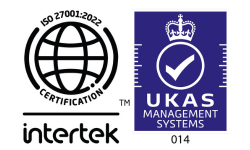Accountant vs Outsourced Payroll Provider: Which is Right for Your Business?

Managing payroll is one of the most important yet complex tasks for any employer when running a business no matter what the size of the business. Each month employers need to pay employees accurately and on time to keep payment compliant and to keep peace in the workplace.
However there is always an ongoing debate for companies, use an accountant or outsource to a payroll service provider?
Below we have weighed up whether an accountant or outsourced payroll provider will benefit your type of business, if you still have any questions on this topic then please get in touch with a payroll specialist at PayEscape.
Pros of Outsourcing Payroll to Software Solutions

Cost-Effective
One of the most significant advantages of outsourcing payroll to a software provider is the cost savings. Payroll software is generally more affordable than hiring an accountant, especially for small and medium-sized businesses. The cost is typically predictable, with subscription-based pricing that includes software updates and support.
Automated Processes
Payroll software automates many of the time-consuming tasks associated with payroll, such as calculations, tax filings, and generating payslips. This reduces the risk of human error and ensures that payroll is processed accurately and on time, every time.
Compliance Assurance
Software solutions like PayEscape are designed to stay up-to-date with the latest tax laws and regulations. This means you can rest assured that your payroll is always compliant, without the need to manually track changes in legislation.
Accessibility and Convenience
Payroll software is accessible online, allowing employers to manage payroll from anywhere at any time. This flexibility is particularly valuable for businesses with remote or international teams.
Scalability
Payroll software can easily scale with your business as it grows. Whether you have a handful of employees or hundreds, the software can handle your payroll needs without requiring additional resources or significant changes to your processes.
Integrated HR and Time Management
Many payroll software solutions, including PayEscape, offer integrated HR and time management features. This means you can manage employee records, track attendance, and handle HR tasks within one integrated platform, streamlining your operations and reducing the need for multiple systems
Data Security
Payroll software providers invest heavily in security measures to protect sensitive employee data. With encryption, secure servers, and regular security updates, you can trust that your payroll information is safe from unauthorised access and cyber threats.
Pros of Using an Accountant for Payroll
Expertise in Financial Matters: Accountants are financial experts who can provide insights beyond payroll, including tax planning and financial forecasting. Their broad understanding of finance can be valuable for businesses looking for a more integrated approach to their financial management.
Personalised Service
An accountant can offer tailored advice and support, ensuring that payroll processes align with your specific business needs. They can handle unique situations, such as employee bonuses, benefits, and complex tax arrangements, with a high degree of personalisation.
Regulatory Compliance
Accountants are well-versed in the latest tax laws and regulations, which means they can ensure your business remains compliant with all legal requirements. This can reduce the risk of penalties and fines associated with payroll errors.
Handling Complex Payrolls
For businesses with complex payroll needs, such as those with multiple pay rates, varying tax codes, or international employees, an accountant can provide the expertise needed to manage these complexities.
Cons of Using an Accountant for Payroll
Cost
Hiring an accountant, especially one with extensive payroll expertise, can be expensive. For small to medium-sized businesses, the cost of employing an accountant may be prohibitive, particularly when compared to the cost of payroll software.
Limited Availability
Accountants, especially those in high demand, may not always be available when you need them. This can lead to delays in processing payroll or addressing urgent payroll issues.
Potential for Human Error
Even the most experienced accountants are susceptible to human error. Manual data entry and processing increase the likelihood of mistakes, which can lead to payroll inaccuracies and compliance issues.
Time-Consuming
Relying on an accountant for payroll can be time-consuming, especially for businesses with frequent payroll changes. The process may involve multiple back-and-forth communications, which can slow down payroll processing.
Comparing Costs
When considering whether to use an accountant or a payroll provider, cost is a significant factor for most businesses. Here’s a breakdown of the potential costs associated with each option.
Accountant Costs
The cost of hiring an accountant to manage payroll can vary widely depending on the complexity of your payroll needs and the accountant’s experience. Typically, businesses can expect to pay anywhere from £50 to £200 per hour for payroll services. For businesses with simple payroll needs, this might involve several hours of work each month, but for those with more complex requirements, the costs can quickly add up.
Payroll Software Costs
In contrast, payroll software typically operates on a subscription basis, with costs ranging from £5 to £10 per employee per month. For a business with 20 employees, this could mean a monthly cost of £100 to £200, which is often more affordable than paying an accountant’s hourly rate. Additionally, payroll software does not incur additional costs for added complexity, such as multiple pay rates or tax codes. The price remains consistent, regardless of how intricate your payroll requirements may be.
The Role of Payroll Software in Ensuring Compliance
One of the most critical aspects of payroll management is ensuring compliance with tax laws and regulations. Failing to comply can result in significant penalties and legal issues for businesses. While accountants are knowledgeable in this area, payroll software offers several advantages when it comes to maintaining compliance.
Automatic Updates: Payroll software is designed to automatically update in line with changes to tax laws and regulations. This means you don’t need to worry about manually tracking legislative changes or updating your payroll processes to comply with new rules. The software takes care of this for you, ensuring that your payroll is always compliant.
- Accurate Calculations: Payroll software performs calculations automatically, reducing the risk of errors that could lead to non-compliance. The software takes into account all relevant factors, such as tax codes, National Insurance contributions, and pension deductions, ensuring that employees are paid correctly and that the appropriate amounts are remitted to HMRC.
- Record Keeping: Maintaining accurate records is a key component of compliance, and payroll software excels in this area. The software automatically generates and stores detailed records of all payroll transactions, making it easy to retrieve information if needed for audits or HMRC inquiries.
- Security and Data Protection in Payroll Management: Data security is a top concern for businesses, especially when it comes to sensitive payroll information. Payroll software offers robust security features that are designed to protect your data from breaches and unauthorised access.
- Encryption and Secure Servers: Payroll software providers, like PayEscape, use encryption to protect data both in transit and at rest. This means that all payroll information is encrypted when it is transmitted over the internet and when it is stored on servers. Secure servers are used to store payroll data, providing an additional layer of protection against unauthorised access.
- Regular Security Updates: To stay ahead of potential security threats, payroll software providers regularly update their systems with the latest security patches and enhancements. This proactive approach ensures that your payroll data remains secure, even as new vulnerabilities emerge.
- Access Controls: Payroll software allows businesses to set access controls, ensuring that only authorised personnel can view or manage payroll information. This helps to prevent internal data breaches and ensures that sensitive information is only accessible to those who need it.
Making the Decision: Accountant or Payroll Software?

When deciding whether to use an accountant or payroll software, businesses should consider several factors, including cost, complexity, compliance, and security. While accountants offer personalised service and expertise in financial matters, payroll software provides a cost-effective, efficient, and secure solution for managing payroll.
Small to Medium-Sized Businesses
For small to medium-sized businesses, payroll software is often the more practical choice. The cost savings, automation, and compliance assurance provided by payroll software can significantly reduce the burden of payroll management, allowing business owners to focus on other aspects of their operations.
Large Businesses
Larger businesses with complex payroll needs may benefit from a hybrid approach, using payroll software for day-to-day payroll management while consulting with an accountant for more strategic financial planning and compliance advice. However, even in these cases, payroll software remains an essential tool for ensuring accuracy and efficiency.
By choosing to outsource payroll through a service provider like PayEscape, businesses can not only reduce costs and improve accuracy but also gain peace of mind knowing that their payroll is being handled by a reliable, secure, and compliant system.
Is payroll software secure enough to handle sensitive employee data?
Yes, payroll software is designed with robust security measures to protect sensitive employee data. Most reputable payroll software providers use advanced encryption methods, secure servers, and regular security updates to ensure that your data is safe from unauthorised access and cyber threats. Additionally, access controls can be set within the software to restrict who can view and manage payroll information, further enhancing security.
How does payroll software ensure compliance with tax laws and regulations?
Payroll software automatically updates to reflect changes in tax laws and regulations, ensuring that your payroll processes remain compliant. The software handles calculations for taxes, National Insurance contributions, and pension deductions accurately, reducing the risk of errors that could lead to penalties. By automating these tasks, payroll software helps businesses stay compliant with minimal effort.
Can payroll software handle complex payroll requirements, such as multiple pay rates and tax codes?
Yes, modern payroll software is equipped to handle complex payroll requirements, including multiple pay rates, varying tax codes, and even payroll for international employees. The software is designed to manage these complexities efficiently, ensuring accurate payroll processing regardless of the intricacies involved.
What kind of support is available if I encounter issues with payroll software?
Most payroll software providers offer comprehensive customer support to assist users with any issues they may encounter. This support can include online resources like guides and tutorials, as well as direct support through email, phone, or live chat. Additionally, many providers offer onboarding assistance to help businesses set up the software correctly and ensure a smooth transition from their previous payroll system.



















